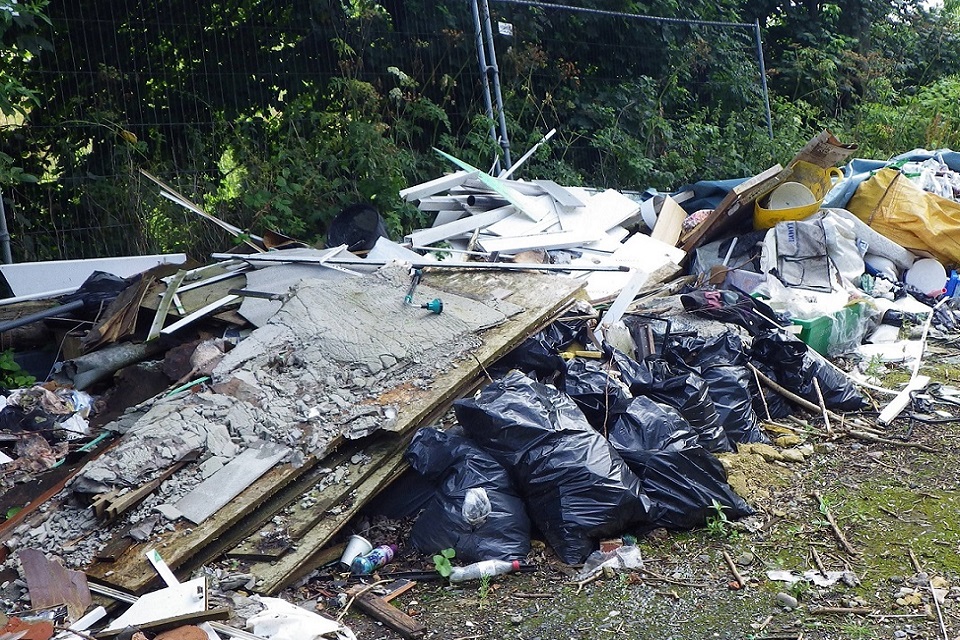Speech: Changes and challenges facing UK bus industry
Introduction – change
Good morning.
It’s a real pleasure to return to the UK Bus Summit today.
I’m grateful to Professor Begg and the team at Transport Times for asking me back.
It doesn’t feel anything like a year since I was last here.
And yet when you look back to January 2016, it seems like a different world altogether.
David Cameron was in an apparently unassailable position as Prime Minister.
After leading his party to victory at the 2015 general election, he was looking forward to securing Britain’s future EU membership in the upcoming referendum.
Hilary Clinton was hot favourite to become the next US President, while Donald Trump was still 6 months away from even receiving the Republican nomination.
And Leicester City were on their way to a Premiership title.
If 2016 taught us anything, it was to expect change.
The world is changing.
Britain is changing.
And we have to be ready for change in this industry too.
Challenge of growth
Because buses face a huge challenge.
How to grow?
The argument in favour of bus travel is as strong as it’s ever been.
No other form of transport can carry large numbers of people quickly, affordably and cleanly in already congested cities and towns.
That’s why buses are still providing 4.5 billion passenger journeys a year.
Getting children to school.
Commuters to work.
And connecting communities with jobs and services.
That’s why they’re our most popular type of public transport.
More bus passengers mean fewer cars on the road.
Fewer cars mean more space for buses on congested city streets.
Which means faster and better journeys.
And in turn, that will attract more customer demand.
The bus isn’t just a highly effective form of transport.
It’s integral to the success of our economy.
To keeping our high streets thriving.
And to cutting pollution.
But last year bus passengers in England continued to decline.
And private bus operators saw patronage fall for the first time in 6 years.
So I see it as our shared goal to reverse that trend.
Successes
I’ve been hugely impressed with the strides many operators are making to attract new passengers and make the experience of bus travel more attractive.
Over 90% of buses are now accessible.
It should be 100%.
Many have free wifi, CCTV and USB charging points.
And since I last stood here major operators have begun the roll out of contactless bank card payment in earnest.
Arriva, First Group, Go-Ahead, National Express and Stagecoach have committed to this.
Which will bring contactless payment to every bus outside London by 2022, with many areas benefiting sooner.
The benefits of smart ticketing, whether on contactless cards, smart cards or otherwise, are clear.
They make journeys across modes easier and speed up journey times.
There are now at least 700,000 smart cards in use outside London and they will only get more and more popular.
So thank you to everyone who is supporting the ticketing revolution.
Bill
But we also need to innovate in other areas if we’re going to achieve our objectives.
Chief among them is extending the range of options to improve bus services where improvement is needed.
How we organise the operation of buses throughout the country.
A year ago I spoke about how the Bus Services Bill would help local authorities and bus operators enter into partnerships.
Allowing them to agree their own standards for services to help attract new passengers.
I spoke, too, about retaining the most valuable parts of the quality contract process.
So we can give Mayors and local authorities the choice to use new powers to franchise bus services in their areas.
And I said the Bill would address passengers’ needs for better information.
Well, the Bill contains all of these things.
However, the journey of the Bill through Parliament has been longer than anticipated.
That was inevitable considering the other pressures on Parliamentary time over the past 6 months.
But although we came up against opposition in the House of Lords,
And although changes were made to the Bill as a result.
I can reassure you that I will be working hard to ensure that the Bill will return largely in its original form.
And it will do what we always intended it to do.
Increase passenger numbers, improve services, and deliver on our devolution deals.
Not by forcing any one approach on the industry, but by creating new options and opportunities.
And I’m also expecting the Bill’s timetable to remain on track.
Article 50 has taken parliamentary time, but we are committed to getting the Bill through Parliament before the Mayoral elections.
Partnership and open data
At its heart are partnerships – between local authorities and bus operators – which are the bedrock on which a successful bus strategy for the future will be built.
The thing about bus services is that everyone should share the same objective.
Put bluntly, “more bums on seats”.
That’s how local authorities can cut congestion, support businesses and improve air quality.
And it’s how operators can improve their bottom line – if you’ll excuse the pun.
New enhanced partnerships will allow local authorities and bus operators to agree their own standards for services in their area.
From branding and emission standards to ticketing.
Every enhanced partnership will have a plan which sets out the improvements that the authority and operators will make.
To make bus travel more attractive.
To identify the problems that are preventing more people from travelling by bus.
And through partnership commitments – to do something about them.
Partnerships offer major benefits for rural communities too.
So the Bill allows better integration between local bus services and other modes of transport.
It will also make more information available to passengers through the open data provisions.
I want bus passengers to have the same access to journey planning and real time information as rail passengers.
And the same as those travelling in London.
So the provisions will require bus operators to make data about routes, fares and the operation of bus services open and accessible.
Franchises
But partnerships may not be the best solution in all areas.
New powers to franchise services will be available to combined authorities with directly elected mayors….
Just as they are in London.
And private operators will compete for contracts.
One of the most notable changes made to the Bill in the House of Lords was the opening up of franchising to all local transport authorities in England.
The government’s position is clear.
We do not support that change.
Strong governance and accountability is needed to make franchising a success.
So it remains our intention that mayoral combined authorities will have automatic access to franchising powers.
Reflecting the centralised decision-making responsibility for transport they will hold.
Other local authorities will be able to access franchising powers with the Secretary of State’s consent.
We want to ensure that franchising is only pursued where it makes sense to do so, where the authority has a realistic plan in place, and – most importantly – where it will benefit passengers.
Consultation
The Bill that leaves Parliament must be fit for purpose.
Above all, that means it will help both bus operators and authorities deliver better services for passengers.
But it will only be a success if the powers it contains are easy to use – and if they are taken up.
That is why we continue to focus on the practicalities.
Working with organisations like the CPT, ALBUM and the Urban Transport Group to prepare key pieces of secondary legislation and guidance.
Your views matter.
So yesterday we launched a consultation to gather your opinions on those detailed bits of policy.
So please go to our website and let us know what you think.
Conclusion
So the challenge is clear.
To unite as an industry.
Bus operators, local authorities and government.
To show that buses are just as much the mode of the future as the mode of the past.
To do that, we have designed a Bus Services Bill that will work for every area of the country.
For franchises and partnerships.
To deliver the services that passengers want.
I’m absolutely confident we can do that.
Not just because we’ve worked so hard on the legislation.
But because I know this is a resourceful and creative industry, which is doing so much great work around the country.
With an average 85% of passengers satisfied with services.
That’s why I’m proud to be Bus Minister.
To represent the industry in government.
And it’s why I look forward to working with you over the next year.
So thank you for listening.
And enjoy the rest of the day.


